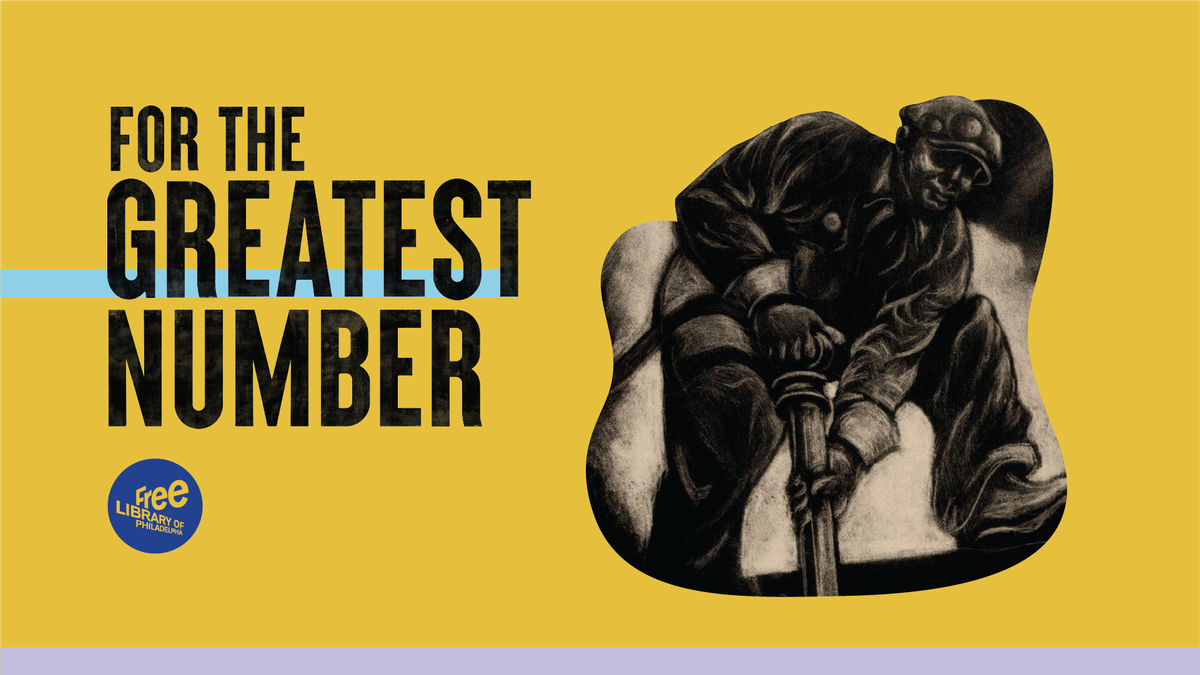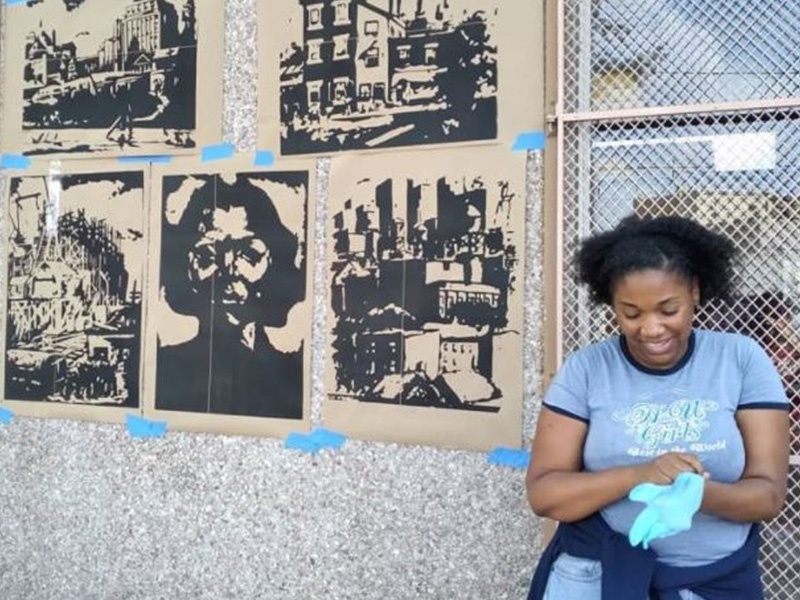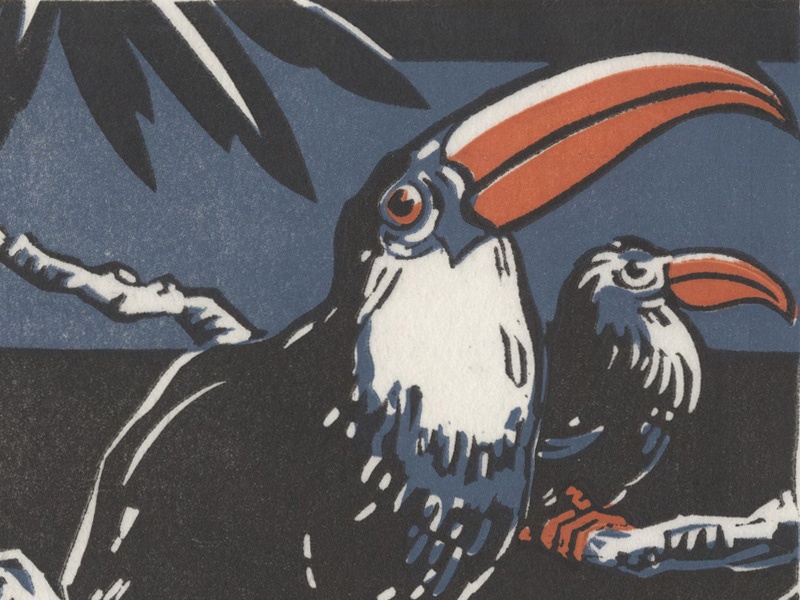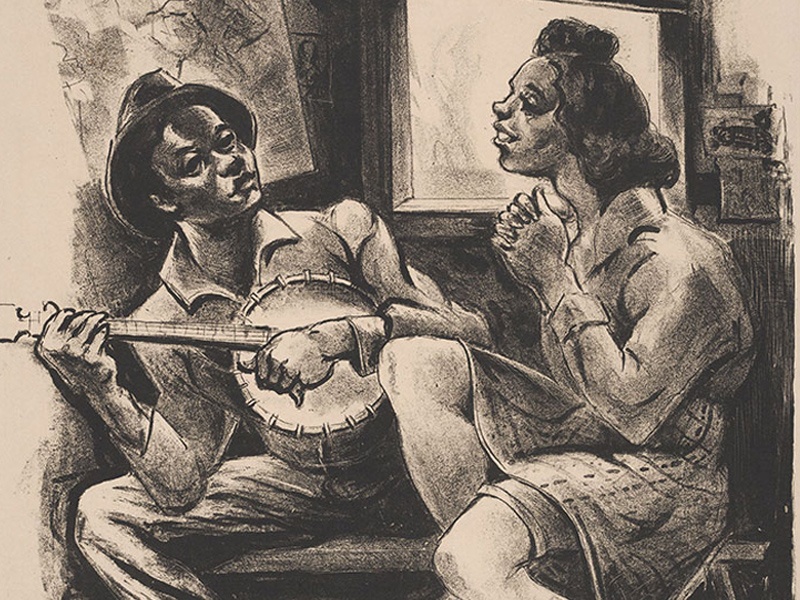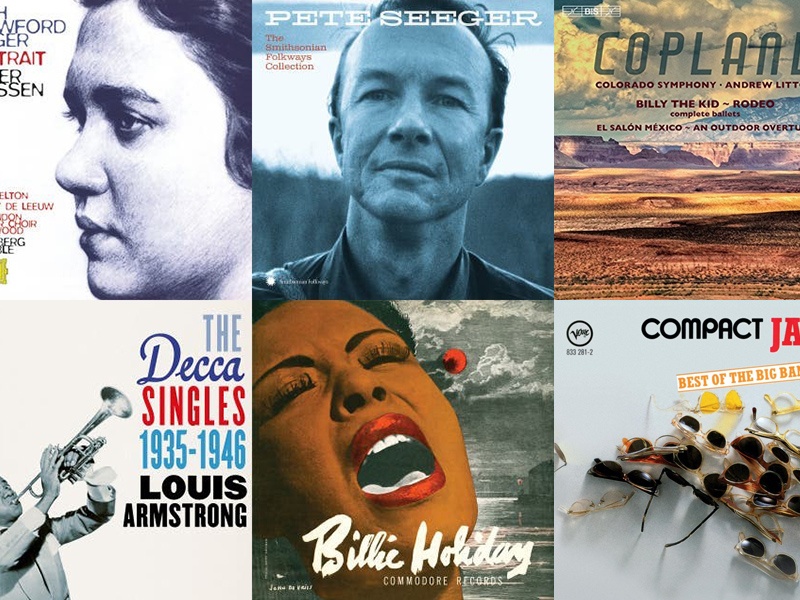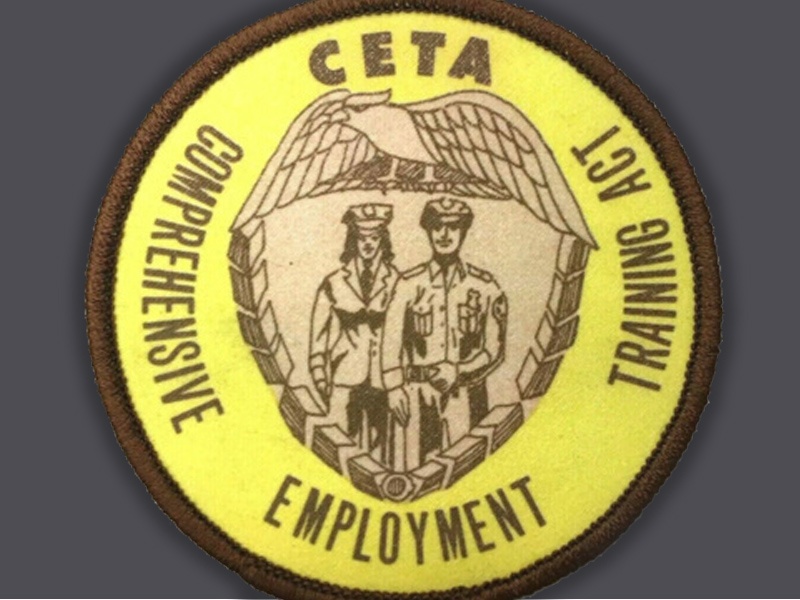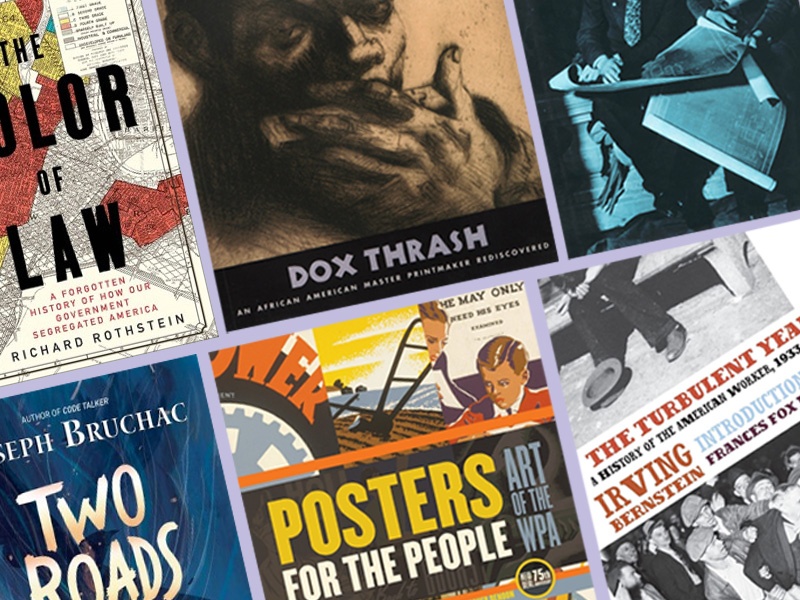by Laura S. and Caitlin G.
It’s been ninety years since the crisis of the Great Depression inspired the New Deal’s government investment and aid. But it’s not just history. The country is again facing a choice: What do we owe our neighbors? What does our country owe us?
The Great Depression was a national crisis that affected everyone—but not equally. Inherited wealth and white supremacy have a long history of making bad times less bad for those with privilege. Here in Philadelphia, unemployment was double the rate of the surrounding suburbs, nearly 100,000 people were evicted, and the city provided no organized relief.
The art and objects funded by New Deal programs show us how workers shaped the country in the 1930s. The posters and prints are beautiful, but they are also an argument about our national values. How does the continuing legacy of white supremacy shade claims about equal rights? Is hard work the highest good? Do we care about the land, or our neighbors, or the future? We hope visitors to the exhibit or its programs are inspired to think about these questions and the ways in which the people of the United States have faced crises before, and how we can face today’s crises.
You can visit our newest exhibition, For the Greatest Number: The New Deal Revisited, in person on the Third Floor of Parkway Central Library, Monday through Friday 9:00 a.m. – 5:00 p.m. You can also explore historic objects from the Library’s collections online or attend free programs around the city.
Upcoming Events
We’re excited to offer hands-on programs happening at Free Library locations around the city, as well as virtual programs that you can attend online. Join us for poster-making, cooking demonstrations, panel discussions, artifact show-and-tells, and more!
Browse our calendar or view past event recordings on YouTube »Digital Collection
The objects on view in the gallery include artwork, books, maps, models, musical instruments, photographs, and more, from across the Parkway Central Library’s amazing research departments and special collections. Together they tell the story of how workers made the New Deal real.
Explore exhibition items online »Blog Posts
Dive deeper into history with the Free Library Blog. Discover more about innovative printmaker Dox Thrash, explore the iconic graphic design of the Poster Workshop, and find out why a flower-loving bull named Ferdinand was banned in Spain. Check back for upcoming stories about Black theatre troupes and Philly’s own New Deal legacy.
Read more about related topics »Spotify Playlist
The New Deal’s Federal Music Project hired out-of-work musicians to write, perform, hand-copy, teach, and record all kinds of music. Public concerts ranged from European classical symphonies to contemporary folk singers. And of course, plenty of classic songs were written in the 1930s without federal funding, like "Brother, Can You Spare A Dime" and "Strange Fruit."
Listen to music from the New Deal »Story Search Podcast
Stream the Story Search podcast from Special Collections, featuring an episode on the Nixon-era jobs program CETA. It was modeled on New Deal arts programs and funded jobs programs for 20,000 artists around the country. Three Philadelphia artists, Allan Edmunds, Blaise Tobia, and Virginia Maksymowicz, are interviewed about their experiences and the program’s impact.
Find out how CETA impacted local artists »Further Reading
Read first-hand histories, from First Lady Eleanor Roosevelt to the stories of tenant farmers and traveling musicians. Explore the arts of the New Deal, from posters to folk songs to puppetry. Where did we get all this information anyway? Check out the curators’ list of works consulted. And finally, we’ve picked out some fun titles for younger readers.
Discover books and other related media »For the Greatest Number: The New Deal Revisited was curated by Caitlin Goodman and Laura Stroffolino. The exhibit and its related programming are made possible by generous support from the Independence Foundation and the IFPDA Foundation. Special thanks to our content reviewers: Bill Brookover, Brent Cebul, Kate Goodman, Marija Gudauskas, and Diane Turner. We’d also like to thank Megan Grimm and Margot Whipps for their design work. This exhibition would not have been possible without the work of many Free Library divisions, including Central Public Services, Collection Care, Communications, Digital Development, Graphics, Institutional Giving, and Special Collections.
Have a question for Free Library staff? Please submit it to our Ask a Librarian page and receive a response within two business days.

